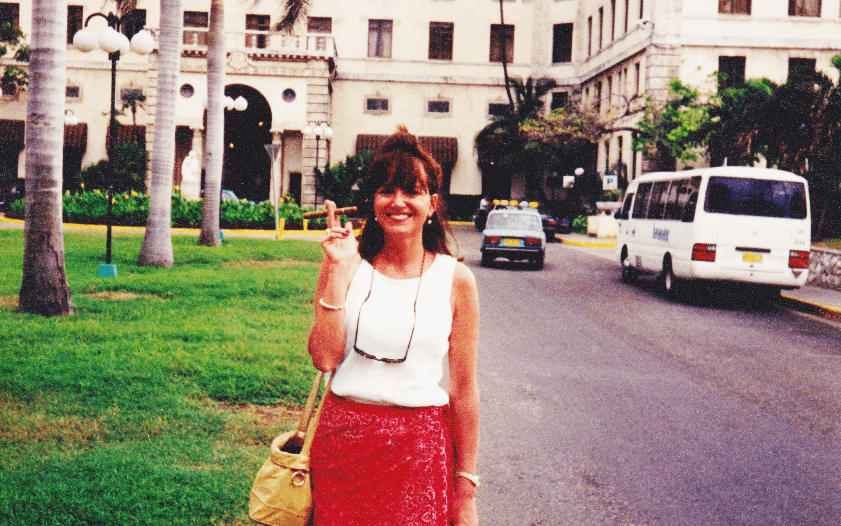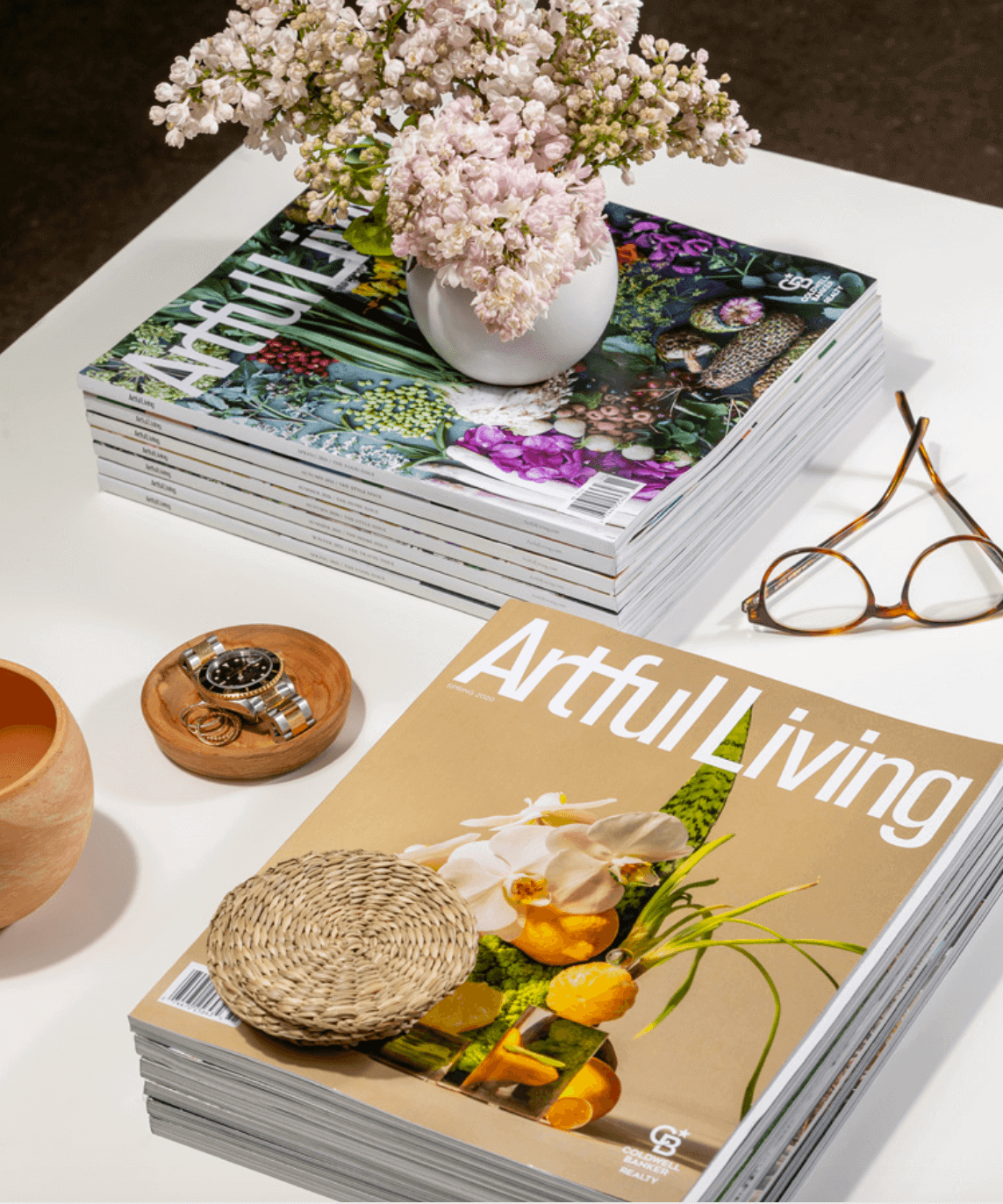I’m not a rule breaker. If anything, I’m a rule follower. Case in point: I’ve gotten a single speeding ticket in my whole life, and I paid it on time with a nearly ridiculous amount of contrition.
And yet, on St. Patrick’s Day 1997, I was detained at the Memphis International Airport. I had my passport confiscated. I was accused of violating the Trading with the Enemy Act, a serious federal offense that can levy a fine of up to $250,000.
But all that was later. First I had to fall in love.
It started three months before. I get a phone call from this guy I had no recollection of meeting. He tells me he’s a friend of a friend and that he’s just moved back into the Twin Cities from Denver, and he was just wondering: Did I want to grab a drink sometime?
I didn’t. I really didn’t. I mean, seriously, how random. But I’m the kind of girl who doesn’t want to offend anyone, even friends of friends who call on the phone. I’m almost irrationally nice that way. On the evening of the scheduled date, I called up one of my friends and complained about having to go. I told her, “You watch. I’ll be back home in an hour.”
But I wasn’t back in an hour. I didn’t come home for more than three hours. Frank and I sat at the bar at Runyon’s, and we drank wine and talked, and the hours passed in a beat. I liked how intensely present he was, how carefully he listened. And I liked his flash, too: his white Saab convertible, his business card that said Vice President of Business Development. The next day, he went on a work trip to Puerto Rico and called me from the island, which I found exciting and exotic. Things got intense very fast. He took me to see shows at the State Theatre. He booked us tables at romantic restaurants. He was flattering, too, but never in an ironic or self-conscious way. One night, he got pulled over for swerving and told the cop, with unblinking sincerity, “Wouldn’t you swerve, too, if you were sitting next to her?” We were on our third date when he pushed a cocktail napkin across the table. “Write down where you want to go on our first long weekend,” he said. I wrote down the usual sort of places: Chicago. Charleston. Napa.
Then he pushed his own napkin across to me with a single word: HAVANA. I looked up. “Wait,” I said. “Isn’t that illegal?”
“Well, yeah, technically,” he said. “But I’ve been there before.”
And so, that was it. He made all the arrangements through a Canadian travel agency. We flew into Cancun from Minneapolis. From the moment we got on the first plane, we were completely punch-drunk for each other. We giggled over the name of the nail polish on my freshly pedicured toes, My Auntie Drinks Chianti. I think the other passengers were about to kill us.
From Cancun, we took a wheezing Cubana turboprop. The Freon blew so plentifully from the overhead vents that we could hardly see each other through the chilly fog. And then we landed in Havana. Frank booked us a room at the Hotel Nacional, a classic old place on the ocean built in 1930 as a copycat of the Breakers Palm Beach. There was no TV, not even a little black-and-white set. The bathroom was covered in tiny white porcelain tiles. The city was more than I imagined: the architecture, the ancient cars, the pastel colors on the buildings washed in Caribbean light.
Frank was completely in his element. One afternoon, he took us to a little open-air cafe where a woman was crooning love songs as people drank Havana Club from tall glasses. Another night, we took dinner in a Cuban family’s wood-framed home, with a single bare bulb hanging from the ceiling. They served us beans and rice and plantains, and there was a picture of JFK on the wall.
Frank wanted to know everything about the cigars, so we went on a self-devised cigar-making tour to Romeo y Julieta, La Corona, and Partagas. He took us to a cabaret show at the Tropicana. We walked for miles. And I was completely in love — with the city, with Frank, with all of it.
 And I’ll admit it: As much as I’ve always prided myself on my fastidious rule following, there was something exciting about being somewhere I was not supposed to be. Sure, it was kind of illegal-lite, like picking bluebonnets in Texas or ripping off a mattress tag or jaywalking across an empty street. But still — exciting.
And I’ll admit it: As much as I’ve always prided myself on my fastidious rule following, there was something exciting about being somewhere I was not supposed to be. Sure, it was kind of illegal-lite, like picking bluebonnets in Texas or ripping off a mattress tag or jaywalking across an empty street. But still — exciting.
When it was over, we were back in Mexico, and it was plain that we had been on a very different kind of trip. Here was the Cancun crowd, in their Carlos’n Charlie’s hats and blistered sunburns, gringos who had spent their days drinking frozen margaritas out of yard-long neon glasses.
We were feeling pretty smug, pretty sophisticated. That is, until we were firmly asked to step out of the line at customs at the Memphis airport. Then it was the Cancuners’ turn to look at us and feel smug. They whispered together in their Señor Frog’s T-shirts. A customs official took us to a room with a stainless-steel table and started in on the questions.
“Where did you travel to?” “Mexico,” said Frank. “Only Mexico?” asked the customs official. “Yes.” “Are you sure?” “Yes.” “Then you don’t mind if we go through your luggage?” “Be my guest.” The customs official gave Frank’s luggage a thorough working-over, but he didn’t find so much as a cigar stub. That’s when I started whimpering softly. Before the trip, Frank had told me not to bring back any souvenirs. “We’re only going to bring back our memories,” he had said. But then we were there, and it was so beautiful, and it wasn’t really all that illegal to be in Cuba, right?
The customs official reached for my bag, and that’s when I put my face in my hands. And out came all my little souvenirs: the stationery from the Hotel Nacional, the Dunhill cigarettes in their metal tin, the Cuban gum. The customs guy, in his hateful Memphis drawl, pulled out the bag of Cuban coffee I bought for my parents and shook it accusingly. “So you haven’t been in Cuba, huh?” he said. Then he took out a cartoonishly large pocketknife and slammed it into the heart of my Cuban coffee. The coffee beans scattered across the table, rattling angrily onto the floor.
That was when I lost it — sobbing, shoulders shaking, the whole bit. The customs official kept on: “You’re in a whole heap of trouble,” he said. “Do you realize that you’ve violated the Trading with the Enemy Act? We’re going to have to contact the State Department, and we’re confiscating your passports.”
They marched us to another sterile room with another stainless-steel table.
Only this time, they locked the door. After making us sweat for three hours, an official came in and told us we could fly back to Minneapolis, but we would be hearing more about this and we wouldn’t be getting our passports back. We had to run to make the last flight.
When we landed, Frank attempted a little levity. “Hey,” he said. “It’s still St. Patrick’s Day. Do you want to go get a drink?” I wasn’t having any of it. “I’m not Irish,” I replied.
The next day, two men in suits arrived at Frank’s office and served him for violating the Trading with the Enemy Act. I got an intimidating packet, too, which laid out the fine I was expected to pay: $15,000. It might as well have been $500,000.
Frank, in his usual way, started asking around. He got the name of a woman, Sandra Levinson, who ran the cultural exchange between the United States and Cuba. She directed us to the Center for Constitutional Rights in Washington, D.C., which took on our case pro bono, arguing that the very heart of the Trading with the Enemy Act kicks at the constitutional right to free travel. We stayed in limbo for 18 long months, until a plain manila envelope arrived in the mail one day with our passports inside. No return address, no official letter — just two passports, passive-aggressively shoved into an envelope.
In a way, the Cuba experience was a good trial run for what life with Frank would be like: risk, adventure, top-shelf dinner-party stories. Being with Frank has helped me ease up on the rule following, but I still want my parents to see me as a good kid. Which is why, 19 years after the fact, I still haven’t told them that I almost got slapped with a felony for trading with the enemy. So Mom, Dad, if you’re reading this — well, just give me a call, OK?
Read this article as it appeared in the magazine.


